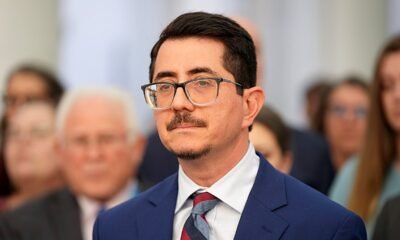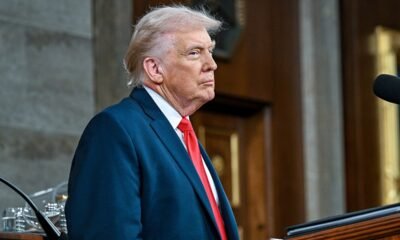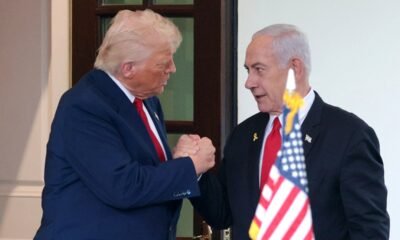INTERNACIONAL
Gabbard fires ‘deep state’ heads of National Intelligence Council to root out ‘politicization of intel’
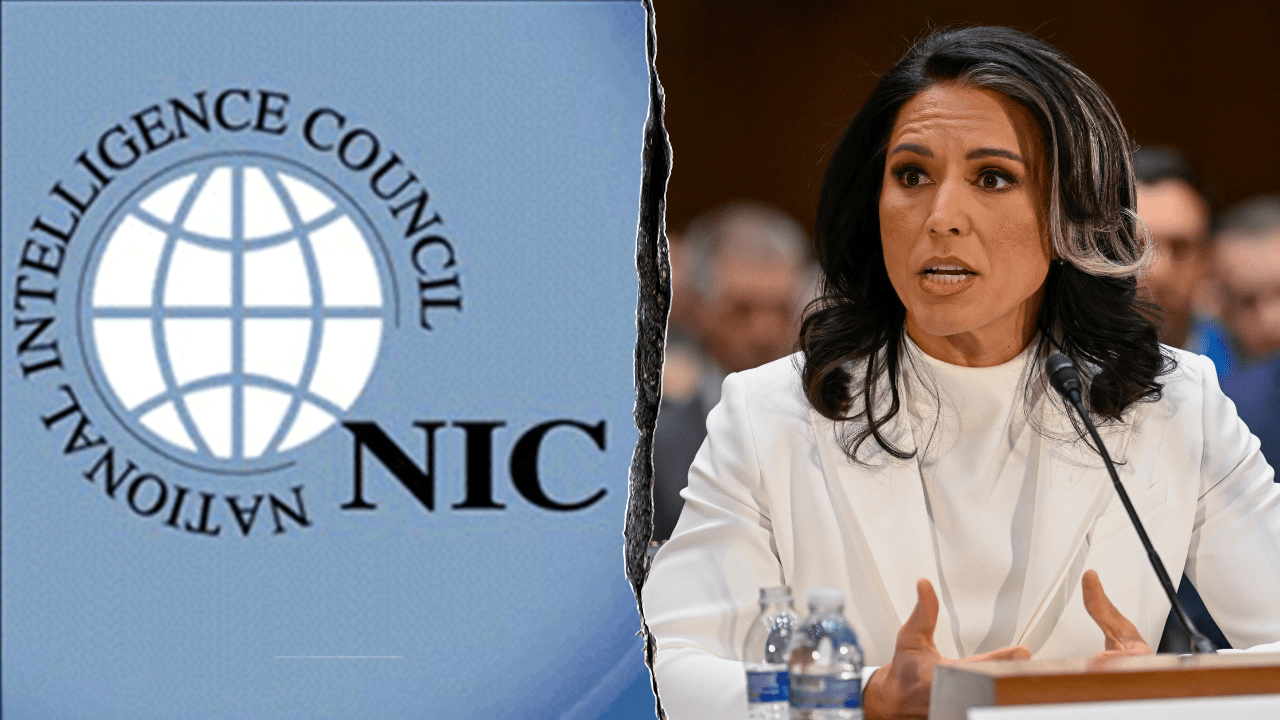
EXCLUSIVE: Director of National Intelligence Tulsi Gabbard has fired the top officials leading the National Intelligence Council — whom whistleblowers describe as «radically opposed to Trump» — and has moved the agency to the Office of the Director of National Intelligence, or ODNI, to ensure she can block any «politicization of intelligence,» Fox News Digital has learned.
Gabbard fired Mike Collins, who was serving as the acting chair of the National Intelligence Council, and his deputy, Maria Langan-Riekhof, Tuesday, senior intelligence officials told Fox News Digital.
DNI GABBARD REFERS INTEL OFFICIALS TO DOJ FOR PROSECUTION OVER ALLEGED LEAKS OF CLASSIFIED INFORMATION
Fox News Digital reached out Langan-Riekhof for comment and did not immediately hear back, and couldn’t immediately find contact information for Collins.
Collins also has whistleblower complaints against him for political bias and «deliberately undermining the incoming Trump administration,» officials said.
They added that Collins was closely associated with Michael Morrell, the former deputy director of the CIA who worked to write a public letter in 2020 claiming that Hunter Biden’s laptop had «all the classic earmarks of a Russian information operation,» and to get signatures from top ex-intelligence officials.
Director of National Intelligence Tulsi Gabbard has fired the top officials leading the National Intelligence Council — whom whistleblowers describe as «radically opposed to Trump.» (John McDonnell/The Associated Press)
As for Langan-Reikhof, officials said she has been a «key advocate» for diversity, equity and inclusion initiatives, and is someone who whistleblowers allege is «radically opposed to Trump.»
Meanwhile, Gabbard is moving the National Intelligence Council from the CIA to the Office of the Director of National Intelligence to «directly hold accountable any improper action and politicization of intelligence,» Fox News Digital has learned.
Many intel community leakers are «career bureaucrats that are entrenched in Washington politics,» officials said.
«It takes time to weed them out and fire them,» one official told Fox News Digital, adding that «plans to eliminate non-essential offices within ODNI that we know are housing deep state leakers are underway.»
A CIA official told Fox News Digital Tuesday that the National Intelligence Council «has always been a DNI component. It makes sense for them to be physically located at DNI.»
GABBARD ESTABLISHES NEW INTELLIGENCE COMMUNITY TASK FORCE TO RESTORE TRANSPARENCY
The moves come as Gabbard has taken steps to root out leakers and alleged «deep state holdovers» who officials say are politicizing intelligence analysis and «trying to sabotage President Trump’s agenda.»
FLASHBACK: BIDEN CAMPAIGN, BLINKEN ORCHESTRATED INTEL LETTER TO DISCREDIT HUNTER BIDEN LAPTOP STORY, EX-CIA OFFICIAL SAYS
So far, Gabbard has referred three intelligence community professionals to the Department of Justice for criminal prosecution over alleged leaks of classified information. Fox News Digital first reported on those criminal referrals in April.
An ODNI official at that time told Fox News Digital that the intelligence community professionals allegedly leaked classified information to the Washington Post and The New York Times.
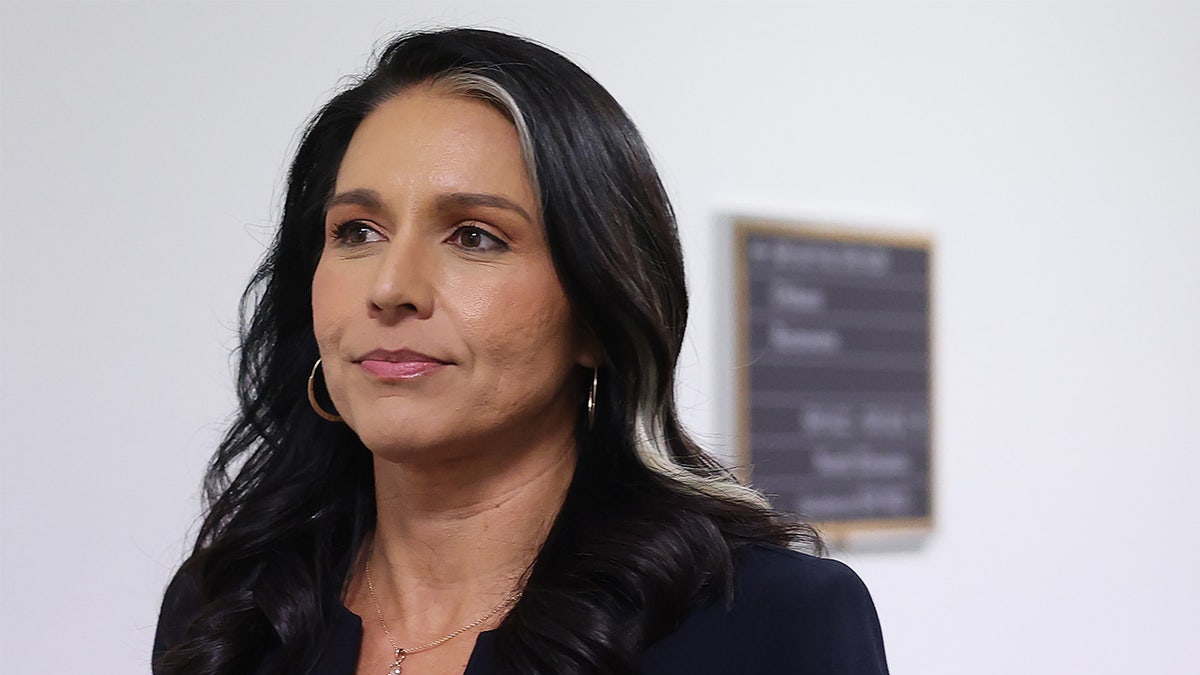
The moves come as Director of National Intelligence Tulsi Gabbard has taken steps to root out leakers and alleged «deep state holdovers» who officials say are politicizing intelligence analysis and «trying to sabotage President Trump’s agenda.» (Getty Images)
«Politicization of our intelligence and leaking classified information puts our nation’s security at risk and must end,» Gabbard told Fox News Digital in April. «Those who leak classified information will be found and held accountable to the fullest extent of the law.»
A senior intelligence official told Fox News Digital Tuesday that the Office of the Director of National Intelligence is investigating 12 other intelligence officials over alleged leaks of classified information.
For example, officials told Fox News Digital that ODNI fired two bureaucrats in early May who they say leaked information from an assessment about the violent Tren de Aragua gang to the Times. Officials said those bureaucrats were «CIA detailees» who were fired for «not following proper procedures.»
In April, Gabbard established a task force to restore transparency and accountability in the intelligence community. Fox News Digital first reported on the Director’s Initiative Group (DIG), which started by investigating weaponization within the intelligence community.
Officials said the group will also work to root out politicization and expose unauthorized disclosures of classified intelligence. In addition, it will work to declassify information «that serves a public interest.»
CLICK HERE TO GET THE FOX NEWS APP
Gabbard also has held to account employees who participated in sexually explicit National Security Agency chatrooms, and is pursuing action against those who have made unauthorized leaks of classified information within the intelligence community.
All the while, officials have complained about the hold up in confirming intelligence nominees, which they say are «essential» to enacting the Trump agenda.
Currently, ODNI is without its nominees for principal deputy director of national intelligence; National Counterterrorism Center; National Counterintelligence and Security Center; intelligence inspector general; and general counsel; among others.
Tulsi Gabbard,Intel,National Security
INTERNACIONAL
Biden accuses Trump of erasing history and squandering US leadership role on global stage: ‘Dark days’
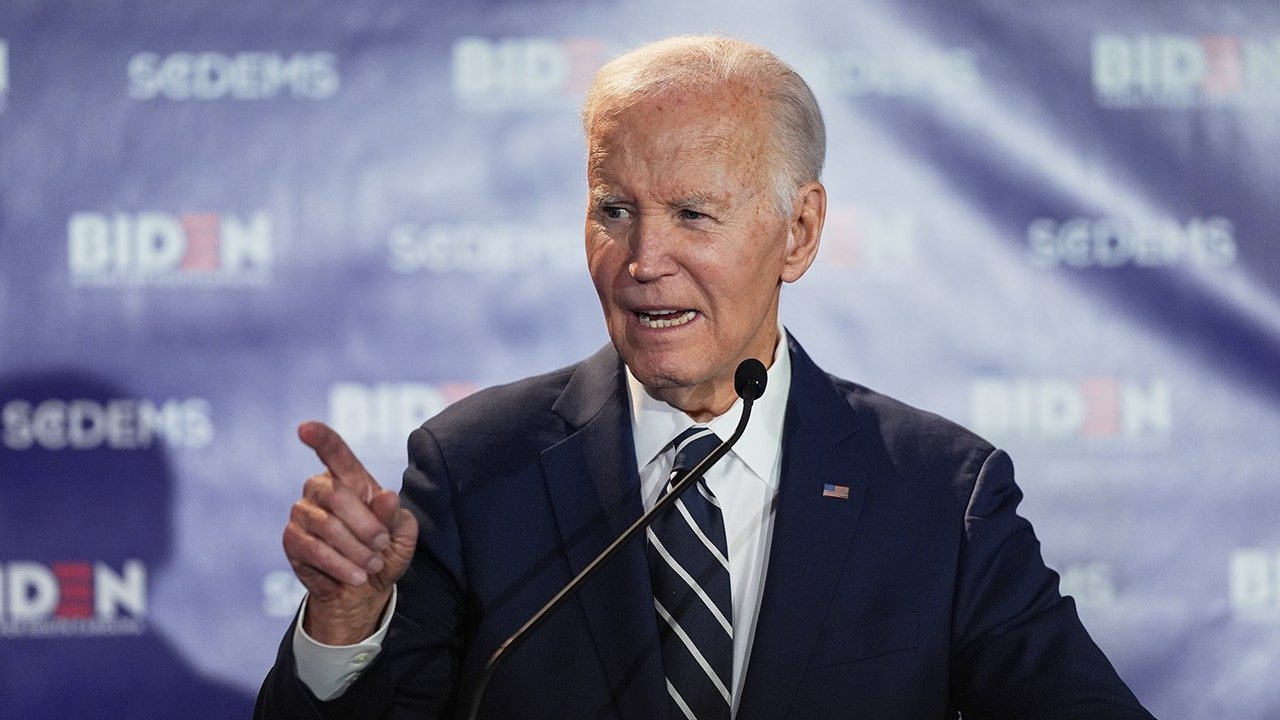
NEWYou can now listen to Fox News articles!
Former President Joe Biden on Friday accused President Donald Trump of attempting to «erase the truth» and squandering the United States’ role as the leader of the world.
«It’s not just my record Trump’s trying to erase,» Biden told South Carolina Democrats, while talking about the president’s efforts to get rid of the Affordable Care Act.
«He’s trying to erase fairness, equity, history, the truth,» he continued, citing incidents in which information about slavery has been removed or altered from museums and national parks since Trump took office.
«Great nations don’t bury the truth, Biden balked. «They face it. This is a great nation.»
Former President Joe Biden on Friday accused President Donald Trump of attempting to erase the truth and squandering the United States’ role as the leader of the world. (AP Photo/Matt Kelley)
Last summer, Trump wrote that «The Smithsonian is OUT OF CONTROL, where everything discussed is how horrible our Country is, how bad Slavery was, and how unaccomplished the downtrodden have been — Nothing about Success, nothing about Brightness, nothing about the Future.»
He also ordered a review of the Smithsonian to make sure its exhibits align with celebrating «American exceptionalism.»
Biden — the guest of honor at Friday’s «thank you» event organized by state Dems who helped resuscitate his presidential campaign six years ago — claimed the U.S. is currently living in «dark days.»
LIZ PEEK: AMERICA EXPECTED ONE THING FROM TRUMP’S STATE OF THE UNION. IT GOT ANOTHER
«Our future is literally on the line,» he said. «We have to be unapologetic about fighting for our country.»
Biden also issued a warning about the upcoming midterms, claiming that Trump is «trying to steal the election because he knows he can’t win your vote, so he’s going to do everything he can to prevent you from wanting to vote. … Mark my words. I hope I’m wrong.»
He said the more that voters see of Trump, the «less they like him.»
SPEECHWRITERS SPLIT AFTER TRUMP’S RECORD-BREAKING SOTU: ‘LIVING IN HIS OWN REALITY’ VS. ‘RESOUNDING SPEECH’
«They don’t like that he’s raising health care costs, fighting against the Affordable Care Act, and they sure as hell don’t like what they saw in Minnesota: Mass ICE agents pulling people out of their homes and literally murdering two people in the street,» he swiped.

President Trump delivered his State of the Union speech on Tuesday. (Kenny Holston-Pool/Getty Images)
Biden, 83, added, «They don’t believe the president should be king or dictator.»
He said because of this, Democrats are winning in places «you’d never expect.»
BIDEN TO HEADLINE NATIONAL BAR ASSN GALA DESPITE SON HUNTER’S DISBARMENT, ALONG WITH CROCKETT, TISH JAMES
«So, we have reason to be hopeful, because time and again throughout history, in the moments of great crisis, Americans have summoned the better angels of our nature and brought our country back from the abyss.»
Biden also predicted that Democrats would take back both the Senate and House of Representatives in November.
Biden boasted that he knew more heads of state than any other president in history, adding, «Americans knew they had a president who believed in, respected and followed the Constitution.»
Citing a Pew Research Poll that he said showed a «dramatic drop in our reputation around the world,» he claimed, «We’re no longer the way we were.»
He added if the U.S. doesn’t lead the world, it could be Russia or China that does.

Ukrainian President Volodymyr Zelenskyy meets with President Donald Trump, Jan. 23, in Davos, Switzerland. (Ukranian Presidency/Handout/Anadolu via Getty Images)
Biden also blasted Trump’s State of the Union speech on Tuesday for what he left out.
«The guy talks for almost two hours but never mentioned the anniversary of Putin invading Ukraine,» Biden admonished. «Never once.»
He also noted that the president didn’t mention Renee Good or Alex Pretti, the Americans who were killed by ICE agents earlier this year in Minneapolis, «or offer even a word of solace to their families.»
CLICK HERE TO DOWNLOAD THE FOX NEWS APP
«He doesn’t offer a word of support, even recognition to Epstein’s victims sitting in front of him during the entire time,» Biden said, mentioning the Jeffrey Epstein survivors who were in the audience for the speech. «He never acknowledged them.»
The White House did not immediately respond to Fox News Digital’s request for comment.
joe biden,politics,donald trump,south carolina,democratic party
INTERNACIONAL
Donald Trump dice que “no está contento” con las conversaciones con Irán y crecen los temores a un ataque de EE.UU.
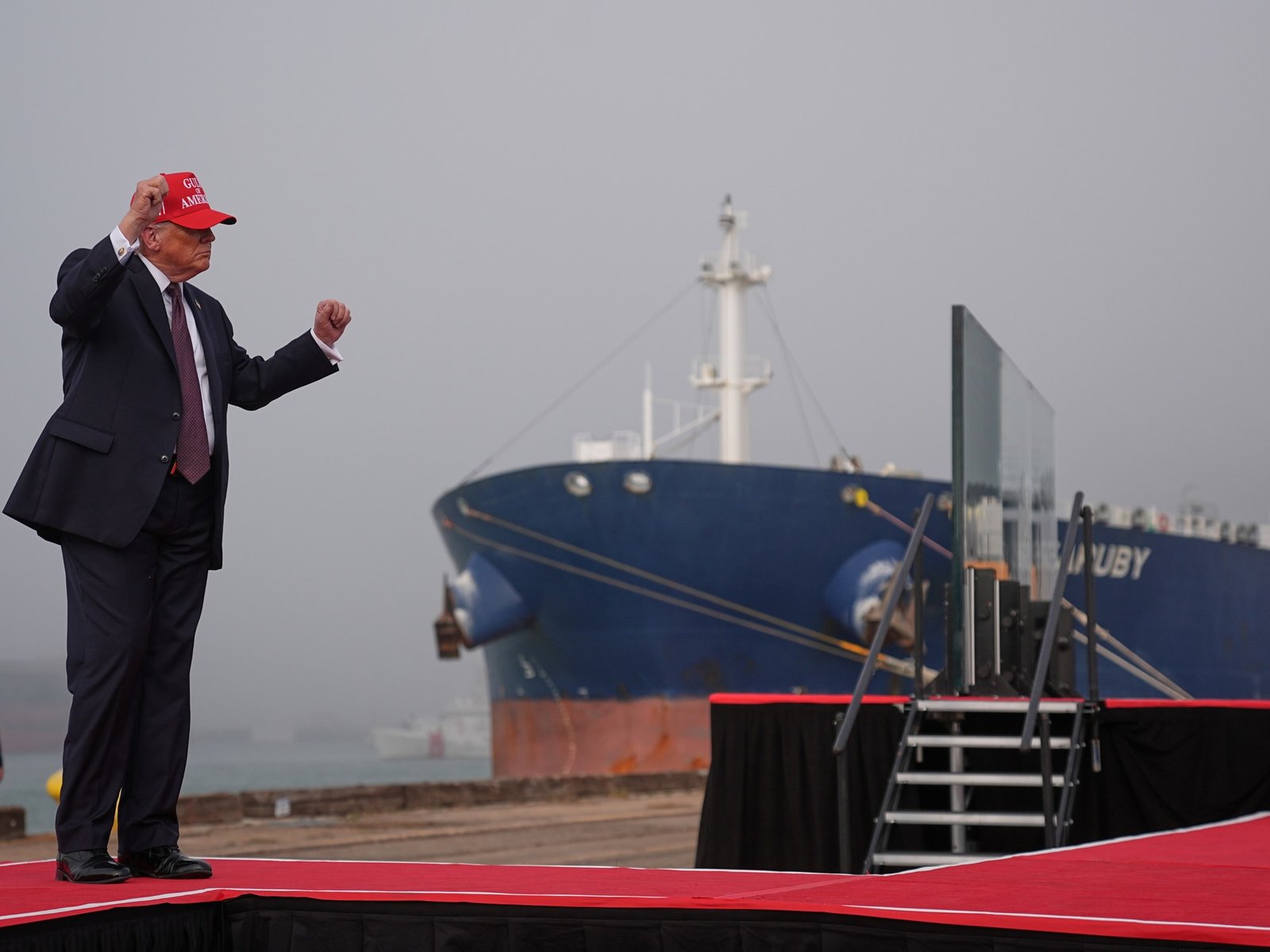
INTERNACIONAL
ICE blasts Washington mayor over directive restricting immigration enforcement

NEWYou can now listen to Fox News articles!
U.S. Immigration and Customs Enforcement (ICE) accused Everett, Washington, Mayor Cassie Franklin of escalating tensions with federal authorities after she issued a directive limiting immigration enforcement in the city.
Franklin issued a mayoral directive this week establishing citywide protocols for staff, including law enforcement, that restrict federal immigration agents from entering non-public areas of city buildings without a judicial warrant.
«We’ve heard directly from residents who are afraid to leave their houses because of the concerning immigration activity happening locally and across our country. It’s heartbreaking to see the impacts on Everett families and businesses,» Franklin said in a statement.
«With this directive, we are setting clear protocols, protecting access to services and reinforcing our commitment to serving the entire community.»
ICE blasted the directive Friday, writing on X it «escalates tension and directs city law enforcement to intervene with ICE operations at their own discretion,» thereby «putting everyone at greater risk.»
Mayor Cassie Franklin said her new citywide immigration enforcement protocols are intended to protect residents and ensure access to services, while ICE accused her of escalating tensions with federal authorities. (Google Maps)
ICE said Franklin was directing city workers to «impede ICE operations and expose the location of ICE officers and agents.»
«Working AGAINST ICE forces federal teams into the community searching for criminal illegal aliens released from local jails — INCREASING THE FEDERAL PRESENCE,» the agency said. «Working with ICE reduces the federal presence.»
«If Mayor Franklin wanted to protect the people she claims to serve, she’d empower the city police with an ICE 287g partnership — instead she serves criminal illegal aliens,» ICE added.
DHS, WHITE HOUSE MOCK CHICAGO’S LAWSUIT OVER ICE: ‘MIRACULOUSLY REDISCOVERED THE 10TH AMENDMENT’

U.S. Immigration and Customs Enforcement blasted Everett’s mayor after she issued a directive restricting federal agents from accessing non-public areas of city facilities without a warrant. (Victor J. Blue/Bloomberg via Getty Images)
During a city council meeting where she announced the policy, Franklin said «federal immigration enforcement is causing real fear for Everett residents.»
«It’s been heartbreaking to see the racial profiling that’s having an impact on Everett families and businesses,» she said. «We know there are kids staying home from school, people not going to work or people not going about their day, dining out or shopping for essentials.»
The mayor’s directive covers four main areas, including restricting federal immigration agents from accessing non-public areas of city buildings without a warrant, requiring immediate reporting of enforcement activity on city property and mandating clear signage to enforce access limits.
BLOCKING ICE COOPERATION FUELED MINNESOTA UNREST, OFFICIALS WARN AS VIRGINIA REVERSES COURSE

Everett, Wash., Mayor Cassie Franklin said her new directive is aimed at protecting residents amid heightened immigration enforcement activity. (iStock)
It also calls for an internal policy review and staff training, including the creation of an Interdepartmental Response Team and updated immigration enforcement protocols to ensure compliance with state law.
Franklin directed city staff to expand partnerships with community leaders, advocacy groups and regional governments to coordinate responses to immigration enforcement, while promoting immigrant-owned businesses and providing workplace protections and «know your rights» resources.
The mayor also reaffirmed a commitment to «constitutional policing and best practices,» stating that the police department will comply with state law barring participation in civil immigration enforcement. The directive outlines protocols for documenting interactions with federal officials, reviewing records requests and strengthening privacy safeguards and technology audits.
CLICK HERE TO DOWNLOAD THE FOX NEWS APP

Everett, Wash., Mayor Cassie Franklin issued a directive limiting federal immigration enforcement in city facilities. (iStock)
«We want everyone in the city of Everett to feel safe calling 911 when they need help and to know that Everett Police will not ask about your immigration status,» Franklin said during the council meeting. »I also expect our officers to intervene if it’s safe to do so to protect our residents when they witness federal officers using unnecessary force.»
Fox News Digital has reached out to Mayor Franklin’s office and ICE for comment.
police and law enforcement,immigration,washington,immigrant rights

 POLITICA3 días ago
POLITICA3 días agoJorge Macri prepara su discurso para abrir el año legislativo: el deseo de reelección y el espejo en Bukele

 ECONOMIA2 días ago
ECONOMIA2 días agoCrisis en la industria: otra multinacional se achica y cierra una planta en la Argentina

 CHIMENTOS1 día ago
CHIMENTOS1 día agoAlarma por la salud de Divina Gloria tras salir de Gran Hermano: “La internaron directamente en terapia intensiva”



